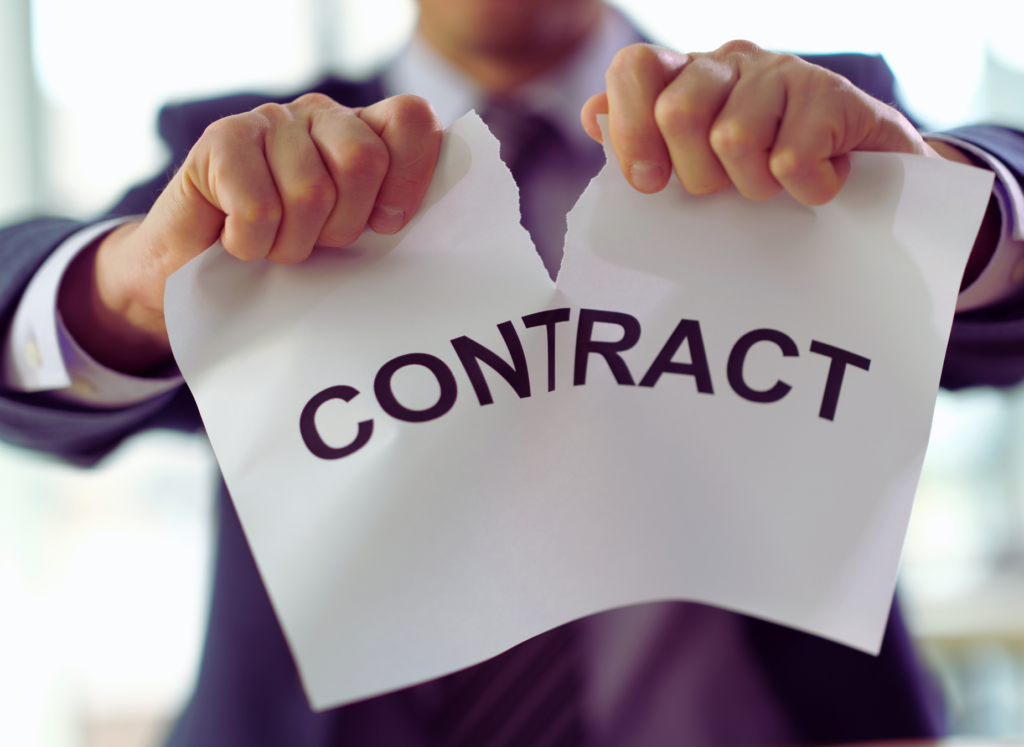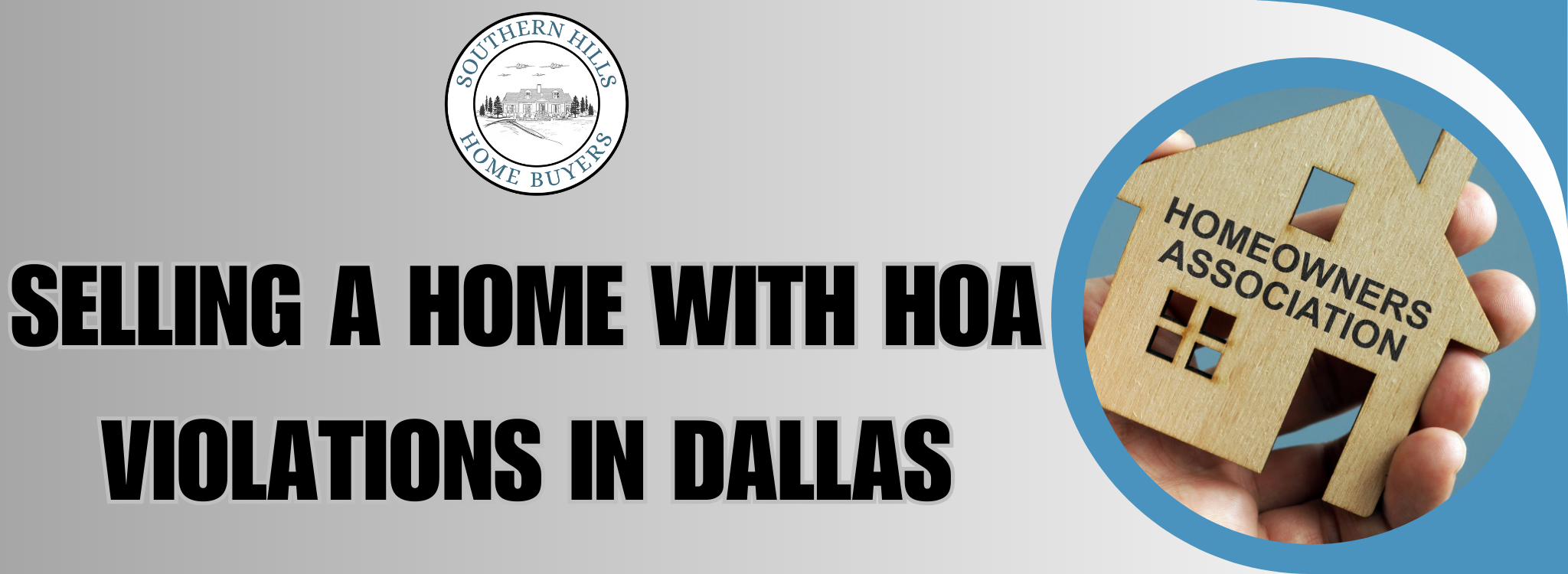
Selling a Dallas Home with HOA Violations: Key Tips to Avoid Penalties and Ensure a Smooth Sale
Understanding the complexities can save you time and financial penalties if you’re selling a Dallas home with Homeowners Association (HOA) violations. Navigating the sale of a property under these conditions necessitates a thorough understanding of your responsibilities and potential solutions. From resolving past-due fees to addressing structural non-compliances, get expert advice tailored to the Dallas real estate market. This guide provides essential tips to help you streamline the process, ensure compliance, and maximize your property’s appeal to potential buyers. Discover effective ways to handle HOA issues without jeopardizing your home sale.
Understanding Homeowners Association Effects on Home Sale

Selling a home in Dallas requires understanding the homeowners association’s (HOA) impact on the transaction. Homeowners’ associations (HOAs) play a significant role in real estate transactions, particularly in communities managed by HOA boards. The selling process may be more difficult if your property has HOA violations. Unresolved issues with the homeowners’ association may deter potential buyers, as many prefer not to bear the burden of resolving these issues themselves. Property owners must address any compliance issues during the home sale process to avoid the transaction being delayed. Real estate in Dallas is competitive, and understanding the specific rules set by the HOA board is critical for a smooth transition.
Managing unpaid HOA dues or fees may also affect the sale’s attractiveness. Unpaid dues may even result in legal complications, which no one wants to deal with when trying to sell a property. Sellers should communicate openly about current violations from the homeowners association to ensure buyers know of any obligations they may inherit. Understanding the scope of what the homeowners’ association can enforce is critical for prospective sellers, and it may even necessitate consulting with HOA management. Understanding community associations can help sellers navigate Dallas real estate sales more efficiently and effectively, even when facing unique challenges.
Selling Your Dallas Home with HOA Violations: Tips and Solutions

Selling a home in Dallas with HOA violations may appear daunting, but finding effective solutions can make the process go more smoothly. When dealing with HOA violations, it’s important to understand the nature of the violation and its potential impact on property sales. Consulting with professionals such as attorneys or lawyers specializing in Texas property and HOA management issues can be extremely beneficial to address these concerns. These legal experts can assist you in navigating the complex rules and regulations governing the sale of a home with HOA violations, as well as propose feasible solutions tailored to your specific situation. It is critical to communicate with your HOA management to clarify any issues surrounding the violation and discuss potential solutions that do not require legal intervention.
If HOA fees or dues are past due due to a violation, settlement must be prioritized for the sale to proceed smoothly. Clearing financial obligations and negotiating payment plans can improve the chances of a successful property sale. Stressing open communication with potential buyers about existing HOA violations and demonstrating proactive efforts to resolve them promotes trust. Some buyers may still be interested, especially if you’ve found workable solutions or the violations are minor. Despite existing violations, Dallas homes can attract potential buyers willing to work through the complexities if you’re transparent and prepared. Thus, dealing with HOA violations and presenting solutions is critical when selling your Dallas home.
Can HOAs Prevent You from Selling Your House?
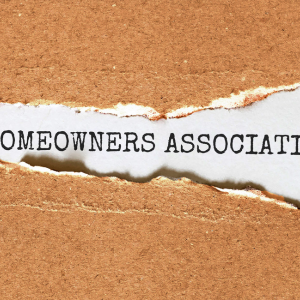
Many homeowners in Texas’s real estate market wonder, “Can HOAs prevent you from selling your house?” The short answer is “no,” but there are nuances. Homeowners’ Associations (HOAs) have significant control over the properties under their jurisdiction, particularly when enforcing bylaws and regulations. However, most HOAs lack the legal authority to stop a sale outright. However, unresolved HOA violations may complicate home selling and reduce prospective buyers’ interest. Before you sell your home, you should check with your HOA to see if there have been any violations. These could include landscaping issues, house exterior modifications, or unpaid fees. Consult with an experienced real estate attorney who understands Texas HOA regulations to avoid potential pitfalls.
They can also assist you in gathering the necessary legal documents to ensure your property sale complies with HOA guidelines. A proactive approach to addressing these violations with the HOA can avoid future legal issues and smooth the ownership transition. Sometimes, it’s simply renegotiating the violation terms or understanding how certain fees affect the sale. Working transparently, gathering all related HOA documents, and consulting with real estate professionals can help avoid litigation and ensure a smooth sale. While selling a property under a HOA regime may appear difficult, it is about knowing how to handle the details effectively. With proper planning and assistance, you should be able to overcome any HOA-induced obstacles successfully.
HOA Rules and Their Impact on Your Home

When selling a home in Dallas, it’s important to understand the Homeowners’ Association (HOA) rules and how they affect your property. HOAs keep the neighborhood looking nice and ensure properties follow certain standards. However, issues like violations can come up, and it’s important to address them for a smooth sale. While HOA violations might seem worrying, knowing their impact helps you take the right steps. Usually, the HOA board or management will explain broken rules and offer ways to fix them.
Resolving these violations is important because leaving them unaddressed can hurt your chances of selling your home. The real estate market in Texas is competitive, so if you’re dealing with HOA problems, it’s crucial to act quickly. A good approach is to contact the HOA board or management to discuss possible solutions. This can make your property more appealing to buyers. Remember that Texas HOA rules are legally binding, so ignoring them can lead to bigger issues. It’s best to work with the HOA and consider legal options. By resolving any HOA problems allows you to sell your home more easily and avoid unnecessary obstacles. It’s also helpful to review the HOA rules regularly to prevent future violations, keeping your property in good standing and attractive to buyers.
Handling HOA Fees and Unpaid Dues
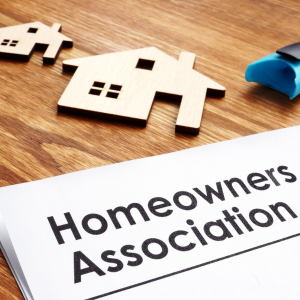
When selling a home in Texas, especially in Dallas, dealing with HOA fees and unpaid dues can be a daunting but necessary task. Unpaid fees and dues can complicate property transactions, especially when dealing with HOA violations. Addressing outstanding dues or delinquent HOA fees ensures a smooth selling process. Typically, your property’s management team should keep you updated on your account status. Ensuring that all payments are up to date is critical; it may prevent potential legal issues during the sale process. When in doubt, consulting an attorney specializing in HOA issues may be wise. They can assist you with any legal complications, resulting in a smoother transaction. Understanding the impact of unpaid bills or violations on your property’s marketability is critical.
Unresolved issues may deter potential buyers, resulting in fewer offers or a stagnant listing. As a result, proactive management of these fees and correcting violations is more than a recommendation; it is necessary. Understanding your legal rights and obligations in Texas can help you avoid unnecessary complications. You can increase the appeal of your property to potential buyers by performing due diligence, resolving violations, and settling unpaid bills. It is wise to consult with a professional who understands real estate and HOA complexities to develop a strategy tailored to your situation. Remember that resolving these issues increases your home’s value and ensures that it sells successfully in the competitive Dallas market.
Additional Resources For TX Homeowners
- Selling A House With A Tax Lien In Texas
- Should I Fix My House or Sell As-Is in Texas?
- What Happens if an Appraisal Comes in Low in Fort Worth?
- How Much Does Home Staging Cost in Texas?
- Is Fort Worth, TX a Good Place to Live?
- Selling a Home with HOA Violations in Dallas, TX
- Can I Sell My House Before Divorce In Texas?
Can You Sell a Home with HOA Violations in Dallas? Here’s What to Do

Selling a house in Dallas with HOA violations can be challenging, but it’s certainly possible. The first step is to identify the specific violations on your property—whether they involve unapproved modifications, unpaid dues, or landscaping issues. Once you understand the infractions, you can begin addressing them. Consider discussing these issues openly with the HOA board to explore potential solutions; sometimes, simply showing a willingness to resolve the problems can satisfy the board and allow you to proceed with the sale.
It’s also wise to gather all relevant HOA documents, such as your HOA agreement, recent notices, and any communications with the board. Being transparent with prospective buyers about the situation can help maintain their interest, as they’ll know what to expect and how to handle the violations. If any restrictions from the HOA affect your sale, be ready to adjust your approach.
Working with a real estate agent experienced in HOA regulations can also be beneficial. Such an agent will know how to navigate the legal complexities and can help you market your property effectively. Keep a record of any actions taken to address the violations; this demonstrates accountability, which can reassure buyers and streamline the sale. While selling a property with HOA violations may require extra effort, it’s achievable with the right strategy and mindset.
How to Overcome HOA Violations When Selling Your Home in Dallas
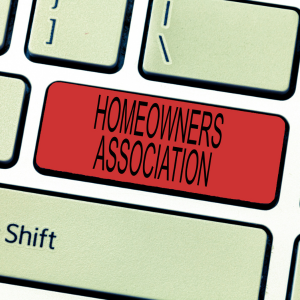
Selling a Dallas home with HOA violations can be difficult, but with some strategic planning, these issues can be overcome. First, you must understand the specific violations associated with your property. Review your HOA’s guidelines to understand what needs to be addressed fully. If the violations are unclear, consult a Dallas real estate attorney familiar with HOA regulations. An attorney can offer advice specific to your situation, making the process go more smoothly and efficiently. Be upfront with potential buyers about any ongoing HOA violations when selling a home. Transparency fosters trust and positions you as an honest seller willing to face these challenges.
A real estate professional with experience in Dallas properties can help overcome obstacles by effectively marketing the home, even with violations. Furthermore, you must determine whether the violations can be resolved before the sale. Addressing issues such as landscaping or exterior maintenance can be a simple fix that can increase the value of your property. If the violations involve unpaid dues or fees, consider settling them to avoid further complications during the selling process. Finally, overcoming HOA violations necessitates a clear strategy and proactive measures to ensure a smooth transaction. By understanding your property’s specific circumstances and working with knowledgeable professionals, such as a real estate attorney, you can face these challenges head-on and successfully navigate the Dallas real estate market.
Selling a Home in Dallas with HOA Violations: Key Steps to Take
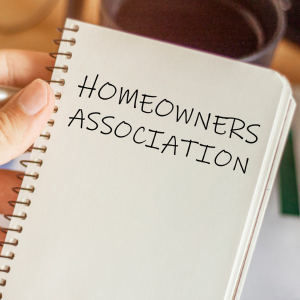
Selling a Dallas home with HOA violations can be difficult, but with a few strategic steps, it does not have to be overwhelming. Begin by identifying the specific violations that affect your property; understanding these early on provides you with the information you need to address them effectively. Consulting with lawyers specializing in HOA laws can guide your legal responsibilities and potential penalties, allowing you to determine whether violations must be resolved before the sale or if a buyer can assume those responsibilities after closing.
With a clear understanding of the issues, address minor violations as soon as possible to help the sale process run smoothly. For more serious violations, consider negotiating a solution with the HOA, such as establishing a payment plan for outstanding dues or requesting a temporary waiver of certain requirements. Partnering with an experienced Dallas real estate agent who understands HOA regulations can also be beneficial; they can market your property to buyers willing to take on these challenges, potentially allowing for an ‘as-is’ transaction.
In conclusion, ensure that all agreements are documented. Check that any agreed-upon repairs or violation-related arrangements are completely detailed in the closing documents. By taking these strategic steps and collaborating with professionals, you can successfully manage the challenges of selling a home with HOA violations, resulting in a smoother transaction. With the right approach, you can make a successful sale.
Navigating HOA Violations: Essential Tips for Selling Your Dallas Home Successfully
Selling a home in Dallas with HOA violations can be difficult, but with the right strategies, it is doable. You can help ensure a smoother transaction by proactively addressing these issues and communicating openly with potential buyers. To successfully navigate this complex process, familiarize yourself with Dallas HOA policies, plan for potential fines, and consult with a real estate expert. This method protects your investment and improves your chances of a successful sale. With these seller tips, you’ll be better equipped to deal with HOA violations and achieve a positive outcome.
This information applies to Texas and its cities, including Coppell, Sherman, and Red Oak. For assistance or questions, please call us at (214) 225-3042. You can also visit our website at Southern Hills Home Buyers for more details.
Get Cash For Your Dallas House Today
We buy houses in Dallas without the hassle and red tape. Get your no-obligation cash offer for your home and just be done. Selling in as-is condition has never been easier.
More Articles That You Might Enjoy





